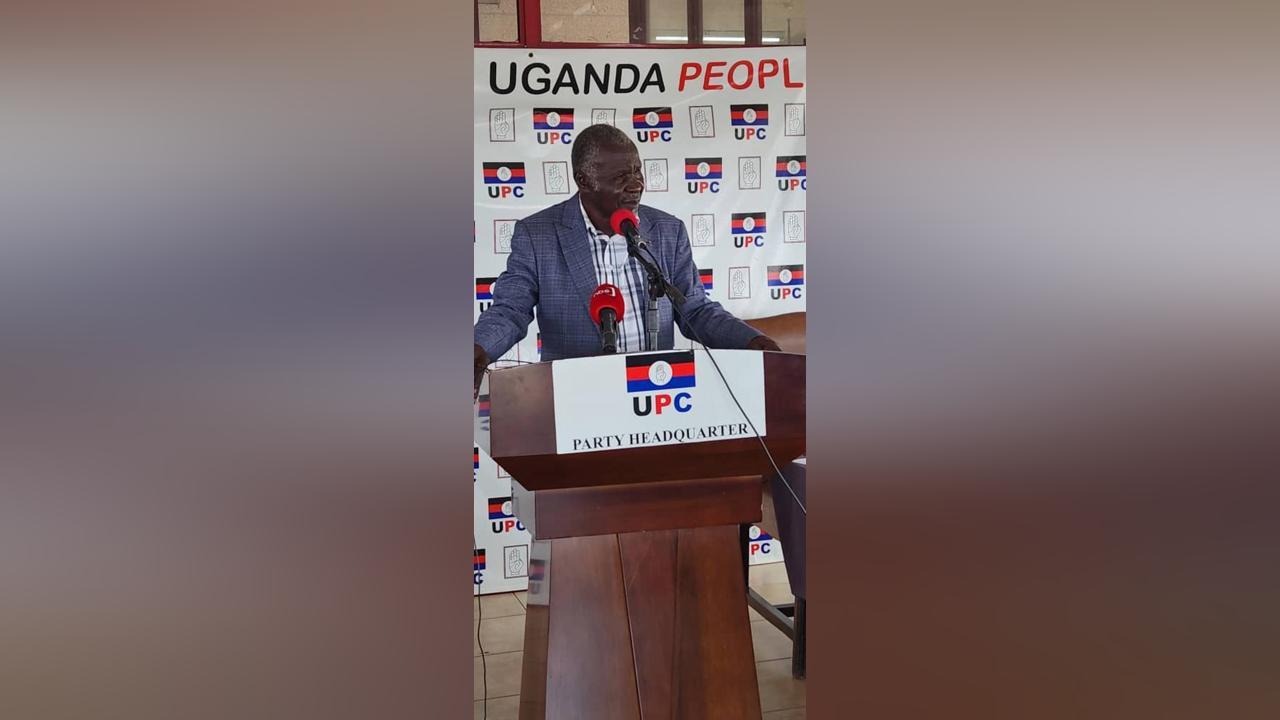Africa-Press – Uganda. The Uganda People’s Congress (UPC) has officially launched its roadmap for the 2025/26 general elections, outlining a packed calendar that places heavy emphasis on rebuilding the party from the ground up and electing a new party president ahead of national polls.
Delivering the details at the party headquarters, UPC Electoral Commission Chairman Hajji Kazimbiraine Mahmoud didn’t mince his words: “This is the roadmap we have prepared for the forthcoming elections,” he declared, rolling out what he called a “back-to-the-roots” strategy.
Kazimbiraine stressed that party membership registration is already underway, citing efforts by the current UPC leadership to galvanize support across the country. “Many of you have seen the president of UPC going from place to place from Kabale to Moyo, Lango, Kitgum printing membership forms, mobilising, and sensitising at the grassroots,” he said.
The exercise includes the submission of membership registers to district offices and the party secretariat, culminating in a master data bank of party members expected to be finalised by June 2025.
“As a party, we need a data bank that tells us who is our member and what responsibilities they are supposed to do,” Kazimbiraine explained.
UPC also plans to develop membership registration software by July 2025 to modernize the tracking process — a sign the party is trying, at least a little, to step into the digital age.
Kazimbiraine was clear that power in UPC must flow from the grassroots: “A branch of UPC starts from the village,” he said. “Don’t wait to stand at the parish or sub-county level you will have missed out.”
Branch elections are scheduled for May 2025, immediately followed by parish and sub-county elections through June. After that, constituency and city division elections will be conducted, with all results to be submitted within a week of voting.
One major twist in the roadmap is the method for electing the next UPC party president. Unlike before, UPC will adopt a two-tier nomination process, combining grassroots voting with district-level confirmations.
“Waiting for the executive only is not enough,” said Kazimbiraine. “Cabinet and the election board agreed to have two nominations of the party president.”
Nominations at the branch level using an adult suffrage system will take place between June 30 and July 6, 2025. These will feed into district-level nominations, with final declarations expected on June 30. The actual election for the UPC party president is slated for July 30, 2025.
And yes, there’s still some mystery hanging over the final guidelines. Kazimbiraine said the party’s electoral board will sit between May 5–20 to finalize “guidelines that will assist” in the nominations.
Beyond the presidency, the party’s election machine will be rolling in full force by May. Members interested in becoming flag bearers for special interest groups must pick and return forms between May 5 and 10. Special interest group primaries at the parish level will run from May 15–17.
Primaries for local council seats will stretch from July to August 2025, with a heavy paperwork load — including National Council for Higher Education certifications required for vetting candidates.
Local government primary forms must be picked up between July 10–15, and party primaries for these positions will take place between August 8–10, 2025.
After that whirlwind, the declaration of UPC’s local government flag bearers will happen on August 10, 2025.
Parliamentary primaries, arguably the real battleground, will mirror the local government process. Applications for MP aspirants at the constituency, district, and city levels must be collected on July 10 and returned by July 15.
The PEC (Party Electoral Commission) will then conduct a “census meeting” (essentially vetting) between July 8–24, leading into primaries on August 10–11.
As every Ugandan knows, no primary season is complete without disputes. UPC has penciled in a two-week window between August 12–26 to handle electoral petitions.
“Handling electoral petitions will be from the 17th to 21st of August,” Kazimbiraine confirmed, suggesting the party is bracing for the inevitable bruises of internal competition.
The UPC leadership is selling this roadmap as a chance to reignite the party’s dormant grassroots, a throwback to the heady days when UPC towered over Ugandan politics. Whether it can still capture hearts (and votes) from Kitgum to Kampala remains the billion-shilling question.
As Hajji Kazimbiraine put it, standing firm before flashing cameras: “This is a journey we have started. It is the members that will shape the party they want.”
And shape it they must because 2026 is coming in fast, whether UPC is ready or not.
For More News And Analysis About Uganda Follow Africa-Press






